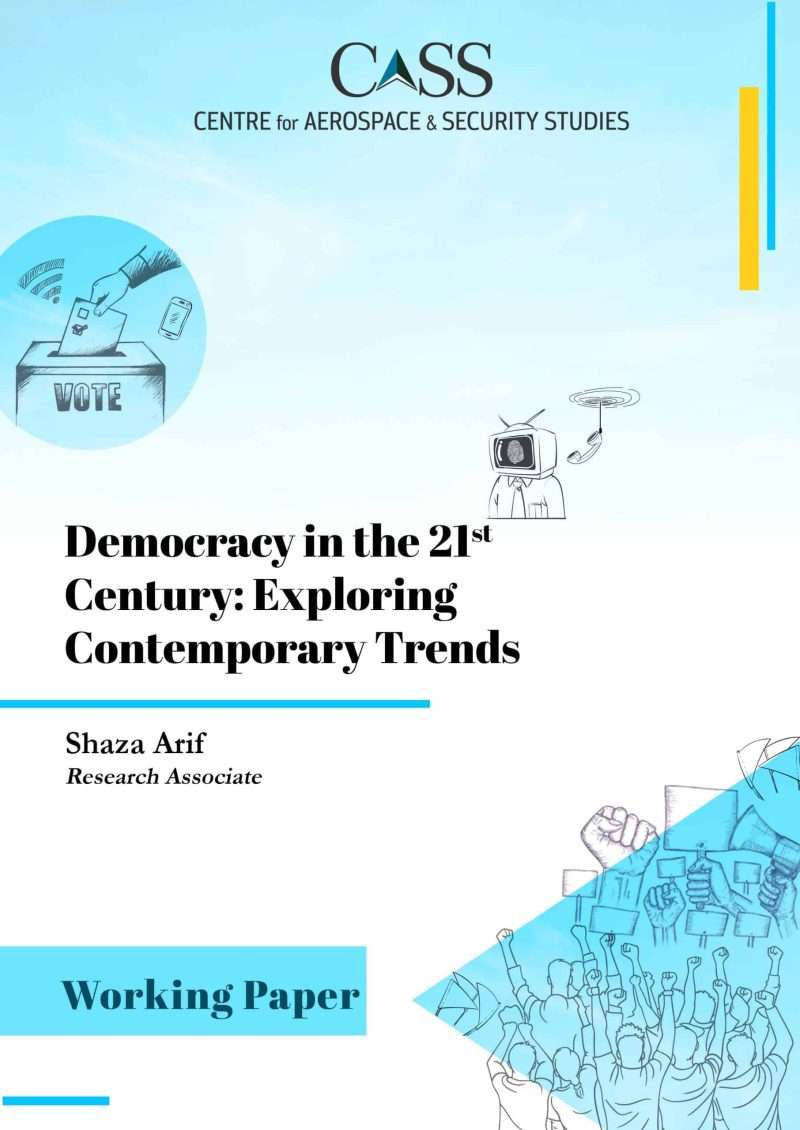In the aftermath of the Cold War, a wave of democratisation, coined by American political scientist Samuel Huntington as the ‘Third Wave’ swept across the world. The wave refers to the transition of several non-democratic setups to democratic ones, promising a future where democratic ideals would grow. However, the present century has witnessed geopolitical events and developments that have impacted the ideals of governance worldwide. The paper aims to investigate contemporary trends of democracy prevalent in the world. It uses prominent democracy indices and reports like the Varieties of Democracy (V Dem); Freedom in the World; Democracy Index; Bertelsmann Transformation Index and the Global State of Democracy report, to have better insights about the Third Wave of Democracy. It also highlights the major factors that are seemingly responsible for its existing status. The findings of the paper reveal that while democracy is seen as an ideal form of governance by many, two decades into the 21st Century, a large proportion of the world is struggling with the third wave in one form or the other. While several internal factors can trigger democratic decline, recurring coup attempts and the rise of far-right populism are accelerating the decline of the Third Wave of democratisation at the global level.

Share this article

The Extraction Trap
Trump’s declaration to “run Venezuela” after Maduro’s capture is a seeming promise of a sudden cure to Venezuela’s ills. However, it ignores the nation’s terminal diagnosis of a century of plunder. The rhetoric of imminent revival on the basis of the speedy return of international oil capital and the promise of 100 billion US dollars in reconstruction funds made the intervention seem like a unique opportunity.

Future Shield: The Saudi-Pakistan Security Partnership
Although the SDMA does not identify an adversary, effectively functioning as a deterrent, it cannot be viewed in isolation from the Israeli belligerence in the Middle East. Israel’s war against Hamas has expanded beyond the genocide of Gaza; it has bombed the West Bank, Lebanon, Syria, Yemen, Iran, and recently Qatar. Tel Aviv’s campaign under the banners of ‘anti-Semitism’ and ‘terrorism’ has engulfed the whole Middle East in a war-like situation, which has generated new enemies and has deepened the instability of the region.

The Trilateral Shift
On 15 January 2026, the Pakistani defence production minister confirmed that an agreement for a new trilateral defence deal between Pakistan, Saudi Arabia, and Türkiye is in the pipeline, other than the Pakistan-Saudi bilateral deal announced last year.

